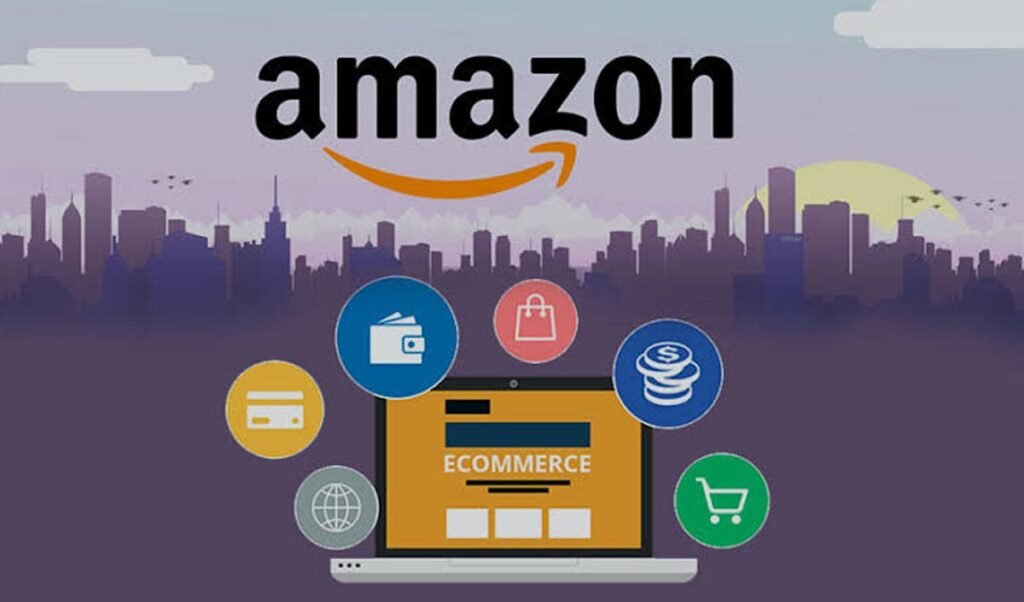introduction:
In the restless e-commerce landscape, Amazon has long been synonymous with convenience, reliability, and innovation. However, while the retailer’s consumer-facing platform has received widespread acclaim, its foray into business-to-business (B2B) commerce through Amazon Commerce represents a transformative shift in approach for organizations to buy products and services Let’s explore its impact and implications for businesses around the world.
The emergence of the Amazon project:
Amazon Business emerged in 2015 as a dedicated marketplace catering to the specific needs of businesses from small businesses to multinational corporations. Leveraging services and know-how through customer-centricity, Amazon sought to revolutionize B2B commerce by providing a one-stop shop for a wide range of products, simplifying the buying process and saving costs on
The launch of the platform marked a significant departure from traditional B2B procurement methods, which often involved complicated supply chains, manuals, and fragmented procurement processes When powered by digital technology using it, Amazon Business aimed to simplify and speed up transactions, which have empowered organizations to focus on strategic priorities rather than business applications
Highlights and offerings:
At the core of Amazon’s business is a comprehensive range of products and offerings designed to meet the needs of businesses across industries and industries These include:
- Huge product selection: Amazon Business has millions of products spread across categories like office supplies, industrial equipment, IT hardware, healthcare essentials etc. If you have access to suppliers and with a variety of processes, businesses can have everything they need to operate effectively and efficiently.
- Business pricing and discounts: Amazon offers competitive pricing and exceptional discounts according to professional business needs. Through measures such as quantity discounts, tiered pricing, and negotiated price agreements, organizations can achieve significant savings on their procurement costs
- Streamlined procurement processes: The platform provides tools and features to streamline the procurement process, including customizable workflow approvals, payment and invoicing in one place , and integrating procurement processes These capabilities enable businesses to streamline their procurement operations, increase compliance and increase operational efficiency.
- Business Analytics and Insights: Amazon Business provides robust analytics and reporting tools that allow businesses to see their purchasing data, spending, and supplier performance. With these insights, organizations can make data-driven decisions, identify cost-effective opportunities, and mitigate risks.
Impact of B2B Marketing:
The introduction of Amazon has had a significant impact on the B2B retail landscape, disrupting traditional buying practices and reshaping the dynamics of buyer-seller relationships Key impacts include:
- Increased efficiency and productivity: By digitizing and automating the procurement process, Amazon Business has enabled organizations to streamline operations, reduce manual processes and increase order fulfillment faster This has increased productivity and efficiency across the supply chain, allowing businesses to focus on value-added services.
- Expanded access to suppliers and manufacturers: Amazon Business has democratized access to suppliers and manufacturers, especially for small and medium-sized enterprises (SMEs) that may not have the resources and networks of larger companies potential. thereby fostering competition and fostering innovation
- Cost Savings and Price Optimization: Competitive pricing, discounts and multiple buying options with Amazon Business enable organizations to maximize spending on their purchasing costs . . . . By consolidating purchasing volumes and taking advantage of contracts, companies can optimize their costs, increase their purchasing power and increase their bottom lines
- Improved transparency and compliance: The transparency and visibility provided by Amazon Business enables businesses to track and manage their procurement activities, ensuring compliance with internal policies, regulations and industry standards. Through features such as real-time reporting, audit trails and cost analysis, organizations can mitigate risks, detect anomalies and maintain accountability throughout the procurement process
Challenges and Considerations:
Although Amazon Business provides many benefits and opportunities for businesses, it comes with challenges and considerations as an Organization needs to navigate well. These include:
- Integration with existing systems: Integrating Amazon Business’ existing procurement systems, ERP software, and accounting systems can present technical challenges and require dedicated resources and expertise . . . . Ensuring data exchange, consistency, and seamless collaboration is essential to the success and efficiency of the procurement process.
- Supplier relationships and quality assurance: Although Amazon’s business provides access to a vast network of suppliers and manufacturers, ensuring that suppliers do good, trust and honesty can be difficult. Establishing and maintaining strong relationships with suppliers, carrying out appropriate inspections and a quality control system are critical to minimizing risks and ensuring customer eyesight received
- Data Security and Privacy: As businesses increasingly rely on digital channels for procurement activities, to protect sensitive data, protect against cybersecurity threats, ensure compliance with data privacy regulations so is of utmost importance Implement strong security measures, encryption protocols and access controls to protect confidential information Important
- Strategic alignment and change management: Embracing digital transformation and adopting new procurement technologies requires strategic planning, organizational buy-in, and change management efforts. Stakeholder education, fostering a culture of innovation, and aligning purchasing behavior with strategic objectives are essential to creating Amazon business value its influence within the organization has increased.
Future Outlook and Trends:
Looking ahead, the future of Amazon’s business and B2B commerce is characterized by continued innovation, performance and growth. Key trends and developments shaping the landscape of the future include:
- Artificial Intelligence and Machine Learning: Using artificial intelligence (AI) and machine learning (ML) algorithms, Amazon Business can deliver personalized recommendations, predictive search, and intelligence automate operations This technology enables businesses to make informed purchasing decisions, anticipate changes in demand and increase operational speed .
- Sustainability and Social Responsibility: With growing awareness and emphasis on sustainability, environmental stewardship, and Corporate Social Responsibility (CSR), Amazon Business has focusing on sustainability, the adoption of environmentally friendly packaging strategies, and ethical sourcing practices Tum, on large lifestyle and environmental outcomes and can
- Supply chain resilience and risk management: The COVID-19 pandemic has exposed weaknesses and vulnerabilities in the global supply chain, highlighting the importance of supply chain resilience, risk management and emphasizing contingency planning. Amazon Business is investing in technologies and processes to increase supply chain visibility, mitigate supply chain risks, and make it more resilient to future disruptions
- Expansion into new markets and services: Amazon business is poised to expand into new markets, services and geographies for continued growth. By leveraging its brand recognition, infrastructure and ecosystem of partners, Amazon Business can access untapped markets serve niche verticals, and take advantage of emerging opportunities in the evolving B2B marketing landscape.
conclusion:
In conclusion, Amazon Business has proven itself to be a transformative force in the B2B retail landscape, redefining how organizations acquire find, buy, and manage products and services Through its large product selection, and affordability, and with new features, Amazon Business offers unmatched convenience, efficiency for its value. Realizing the full potential of a project requires strategic alignment, technology integration, and organizational agility. By embracing digital transformation, encouraging collaboration, and prioritizing customer centricity, businesses can leverage the work of Amazon to drive growth, innovation, and success in the digital age.


